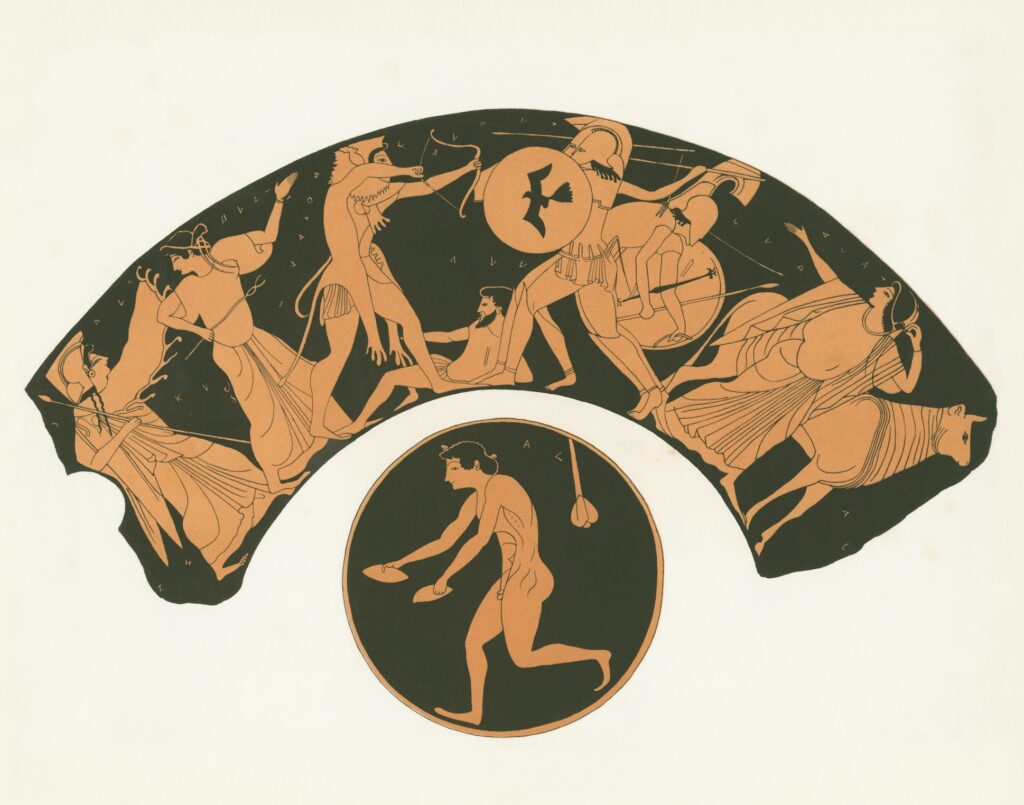Netflix’s Kaos Continues Pop Culture’s Love of Greek Mythology

Source: Unsplash
Greek mythology has proven to be a cultural powerhouse in recent years, continuing to captivate audiences and inspire creators. More than 2,700 years after these myths were first recorded, they remain central to various modern media. Authors are reviving these tales with feminist and diverse perspectives, TV producers are betting on mythological dramas, and social media platforms are buzzing with passionate discussions about fantastical plotlines featuring gods, heroes, and monsters.
In 2024 Netflix’s critically-acclaimed 8-part series Kaos starring Jeff Goldblum continued this trend. Created by Charlie Covell, this dark comedy series reimagines the Greek gods as flawed and corrupt beings, showcasing their insecurities and power struggles in a fresh, contemporary light. By intertwining a prophecy-driven story with the lives of three humans – Eurydice, Caeneus, and Ariadne – the show introduces classic mythological figures into a dynamic new setting.
Kaos’ Imaginative Retelling of Greek Myth
Netflix’s KAOS brings Greek mythology to life in a unique and fascinating way by reimagining the Olympian pantheon and its complex relationships with mortals in a modern setting. Stephen Dillane’s Prometheus narrates this tale of prophecy and cosmic imbalance. At the same time, a stellar cast, including Jeff Goldblum as Zeus and Nabhaan Rizwan as a multifaceted Dionysus, brings these mythic figures to vivid life.
Rizwan’s portrayal of Dionysus as both a troubled, emotionally vulnerable god and a source of comedic relief captures the deity’s ancient duality, while Misia Butler’s Caeneus provides a powerful exploration of gender identity. This balance of humor, power, and social relevance makes the series a bold and engaging retelling.
Dr. Ellie Mackin Roberts, an ancient Greek historian, believes the portrayal of Zeus stands out as a compelling, accurate depiction, capturing the god’s arrogance and quick temper. She praises the show’s handling of prophecy and its grounding in mortal interpretation. Roberts highlights examples from ancient history, like Themistocles interpreting the “wooden wall” prophecy and Croesus’s misinterpretation of his fate, to illustrate how Kaos faithfully adapts these themes. Additionally, the subtle nods to the original myths, like Orpheus facing away from Riddy when she returns from the Underworld, create a poignant reimagining.
Ancient Greece in Films, Video Games, Music and More
Greek mythology has had a profound influence across various forms of entertainment, from video games and movies to music and tabletop games. In gaming, for example, titles like God of War and Assassin’s Creed Odyssey bring the myths to life through immersive storytelling and detailed ancient settings. Elsewhere, some of the best real money slots like Medusa Megaways and NetEnt’s Divine Fortune, with its progressive jackpot and 20 paylines, celebrate ancient Greece in a unique way. Indeed, Diving Fortune’s reels are made up of familiar symbols such as the images of Medusa and Pegasus.
Films such as Alexander, Troy, 300, and Immortals adapt legendary Greek tales while the psychological horror film The Killing of a Sacred Deer even reimagines Greek tragedy with a modern, unsettling twist. Beyond screen adaptations, ancient Greece even seeps into the music of The Doors, whose song “The End” references the Oedipus myth, and into tabletop role-playing games like Dungeons & Dragons, which features Greek-inspired campaign settings.
Kaos stands as a vibrant testament to Greek mythology’s enduring appeal in pop culture, offering a fresh, compelling take that modern audiences eagerly embrace. This fascination persists because these timeless myths reimagined across TV, film, music, and gaming, provide endless possibilities for storytelling, resonating with contemporary themes while celebrating their rich, ancient origins.







